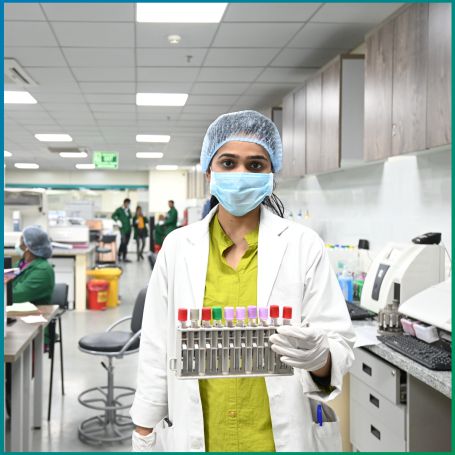
A sputum culture test involves analyzing a sample of sputum to detect infectious organisms.

The sputum culture and sensitivity test goes a step further by assessing the sensitivity of the identified microorganisms to various antibiotics. This helps in selecting the most effective treatment option.
To perform a sputum culture test, you will be asked to provide a sample of sputum, which is usually collected in the morning for optimal results. Here’s how the process works:
1] Collection: You’ll be asked to cough deeply and expel the sputum into a sterile container. It’s important to avoid saliva or mucus from the throat.
2] Processing: The sputum sample is sent to a laboratory where it is cultured to grow any microorganisms present.
3] Sensitivity Testing: Once microorganisms are identified, the lab tests their sensitivity to various antibiotics to determine which will be most effective in treating the infection.
Sputum culture and sensitivity results indicate the types of bacteria, fungi, or other pathogens found in the sample. The results will also show which antibiotics are effective against these pathogens, helping your healthcare provider choose the best treatment. Typically, results are available within 2 to 7 days depending on the complexity of the culture and sensitivity testing.
1] Normal Results: Indicate no harmful pathogens were detected in the sputum sample.
2] Abnormal Results: Show the presence of pathogens that may be causing respiratory infections. The sensitivity results will guide the selection of appropriate antibiotics.
Diagnopein Diagnostic Centre in Pune offer comprehensive, accurate, and timely diagnostic services, including the sputum culture and sensitivity test. With our NABL-accredited labs, cutting-edge technology, and skilled technicians, you can be assured of reliable results every time. Get your results quickly, especially when time is crucial in detecting severe infections.
Competitive pricing without compromising on quality. Our team of experienced professionals ensures the test is conducted smoothly with minimal discomfort. We provide not just the sputum culture and sensitivity test results but insights into your health condition, helping you and your doctor make informed decisions about treatment. For more information call us at +91 9204 108108.
1. Culture Method
2. Sample
3. Colony Count
4. Organism(s) Isolated
5. Culture Report: Culture yields growth of
6. Culture isolated after 7 days :
7. Culture isolated after 14 days:
8. Culture isolated after 21 days:
9. Ampicillin
10. Amikacin
11. Amoxicillin clavulanate
12. cefoperazon+sulbactam
13. Cefuroxime
14. Cefepime
15. Cefotaxime
16. Ciprofloxacin
17. Ertapenem
18. Gentamicin
19. Imipenem
20. Meropenem
21. Norfloxacin
22. Nitrofurantoin
23. Piperacillin-tazobactam
24. Trimethoprim-Sulfamethoxazole (Cotrimoxazole)
There are no specific preparations required for this test. However, it is recommended to avoid eating or drinking just before the sample collection. Inform your healthcare provider of any medications you are taking.
The sputum sample is sent to a laboratory where it is cultured to grow any microorganisms present. The laboratory then performs sensitivity testing to determine which antibiotics or antifungals are effective against the identified pathogens.
The sputum culture and sensitivity test is non-invasive and generally safe. The primary discomfort may be related to the coughing required to produce a sputum sample. If you have any concerns, discuss them with your healthcare provider.
The test may be repeated if there is a persistent or worsening infection, if initial treatments are ineffective, or if new symptoms develop. Your healthcare provider will advise you on the need for repeat testing based on your individual condition.